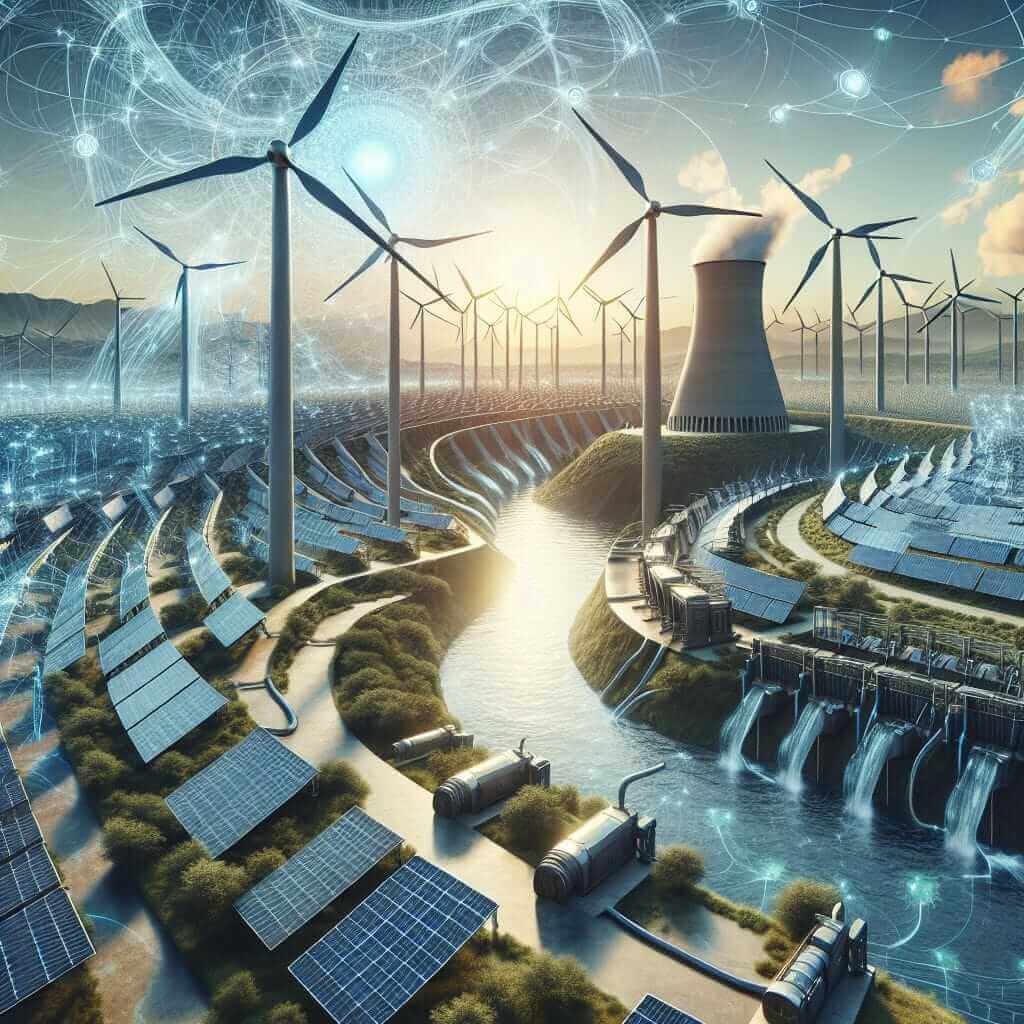The IELTS Reading section is designed to test a wide range of reading skills, including your ability to understand the main idea, locate key information, and identify details, opinions, and implications within given texts. One trending topic that has appeared and is likely to reappear is the impact of renewable energy adoption on national security. This topic reflects global concerns and has appeared in various forms in previous tests. Given its relevance and recurrence, understanding this subject and practicing related questions can significantly enhance your preparation for the IELTS Reading section.
Sample Reading Passage
Renewable Energy Adoption and Its Effects on National Security
The transition to renewable energy has become a critical issue in the 21st century due to its potential to address climate change and reduce dependence on fossil fuels. While the environmental benefits of renewable energy are well-documented, its implications for national security are equally profound and multifaceted.
Renewable energy, including solar, wind, and hydroelectric power, offers the prospect of energy independence. For many nations, reliance on imported fossil fuels has long been a vulnerability. Countries dependent on imports are susceptible to geopolitical conflicts and supply chain disruptions. By contrast, renewable energy sources are locally available, reducing exposure to international market volatility and enhancing energy security.
Additionally, adopting renewable energy can mitigate the risks associated with the monopolistic control of energy resources. Historically, a few nations have dominated global oil and gas supplies, giving them substantial political leverage. Diversifying the energy portfolio with renewables dilutes this concentration of power, thus fostering a more equitable and stable energy landscape.
Another dimension of the national security benefits of renewable energy is the potential reduction in military expenditures. Countries spend significant resources on securing energy supply lines and protecting fossil fuel interests abroad. Transitioning to renewable energy can alleviate these security burdens, allowing countries to reallocate military spending towards other critical areas.

Furthermore, renewable energy infrastructure is inherently more resistant to disruptive attacks compared to centralized fossil fuel systems. Distributed energy systems, such as solar panels and wind turbines, are decentralized by nature. This decentralization makes the overall energy grid less susceptible to large-scale attacks or failures.
Despite these benefits, the transition to renewable energy is not without challenges. Initial investments are substantial, and the integration of renewable sources into existing grids requires technological advancements. Additionally, energy storage solutions are essential to address the intermittency of renewable sources, ensuring a consistent and reliable energy supply.
In conclusion, while the shift to renewable energy presents various challenges, its adoption significantly enhances national security by promoting energy independence, mitigating geopolitical risks, reducing military expenditures, and creating a resilient energy infrastructure. Policymakers must thus weigh both the immediate costs and the long-term security benefits as they navigate the global energy transition.
Questions
Question Type: True/False/Not Given
- The environmental benefits of renewable energy are well-documented.
- Nations depend less on imported fossil fuels when they adopt renewable energy.
- Renewable energy can eliminate the need for military forces to protect fossil fuel interests.
- Renewable energy systems are more vulnerable to disruptive attacks than centralized fossil fuel systems.
- The transition to renewable energy involves substantial initial costs.
Question Type: Summary Completion
Complete the summary below. Choose NO MORE THAN TWO WORDS from the passage for each answer.
The adoption of renewable energy can enhance national security by offering energy (1) ____, reducing geopolitical (2) ____, lowering military (3) ____, and building a more (4) ____ energy infrastructure. Nevertheless, the transition involves significant (5) ____ and technological challenges, including the need for advanced (6) ____ solutions to ensure reliability.
Answers and Explanations
True/False/Not Given
- True – The passage states that the environmental benefits of renewable energy are well-documented.
- True – The passage mentions that renewable energy sources are locally available, reducing dependence on imports.
- False – The passage mentions reducing military expenditures, but not eliminating the need for military forces entirely.
- Not Given – The passage does not compare the vulnerability in a way that states renewable energy systems are more vulnerable.
- True – The passage acknowledges that the transition involves substantial initial investments.
Summary Completion
- independence
- risks
- expenditures
- resilient
- costs
- storage
Common Mistakes
- Misinterpreting Keywords: Students often misinterpret keywords or phrases, leading to incorrect answers. Practice identifying keywords and understanding their exact meaning.
- Overlooking Details: Skipping over details might cause you to miss subtle distinctions that are crucial for answering True/False/Not Given questions.
- Incomplete Information: Ensure you read and synthesize the entire passage rather than focusing on isolated sentences.
Vocabulary
- Prospect (n.) /ˈprɒspekt/: the possibility or likelihood of some future event occurring.
- Susceptible (adj.) /səˈseptəbl/: likely or liable to be influenced or harmed by a particular thing.
- Monopolistic (adj.) /məˌnɒpəˈlɪstɪk/: relating to a person or business that has exclusive control over something.
- Intermittency (n.) /ˌɪntər’mɪtəns/: the occurrence of intervals between periods of activity or operation.
Grammar Focus
Passive Voice
Structure: Subject + to be (in the correct tense) + past participle + (by + agent)
Example: Renewable energy sources are locally available, reducing exposure to international market volatility.
Relative Clauses
Structure: Main clause + relative pronoun + subordinate clause
Example: Countries that are dependent on imports are susceptible to geopolitical conflicts and supply chain disruptions.
Recommendations
To excel in the IELTS Reading section:
- Practice Regularly: Regular practice with various topics, including current global issues like energy security, enhances your comprehension skills.
- Build Vocabulary: Expand your academic vocabulary to better understand and answer complex passages.
- Understand Question Types: Familiarize yourself with different question types and practice strategies for tackling each one efficiently.
For more reading materials and practice tests on the topic of renewable energy and national security, visit our detailed article on How is Renewable Energy Adoption Affecting Global Energy Security.